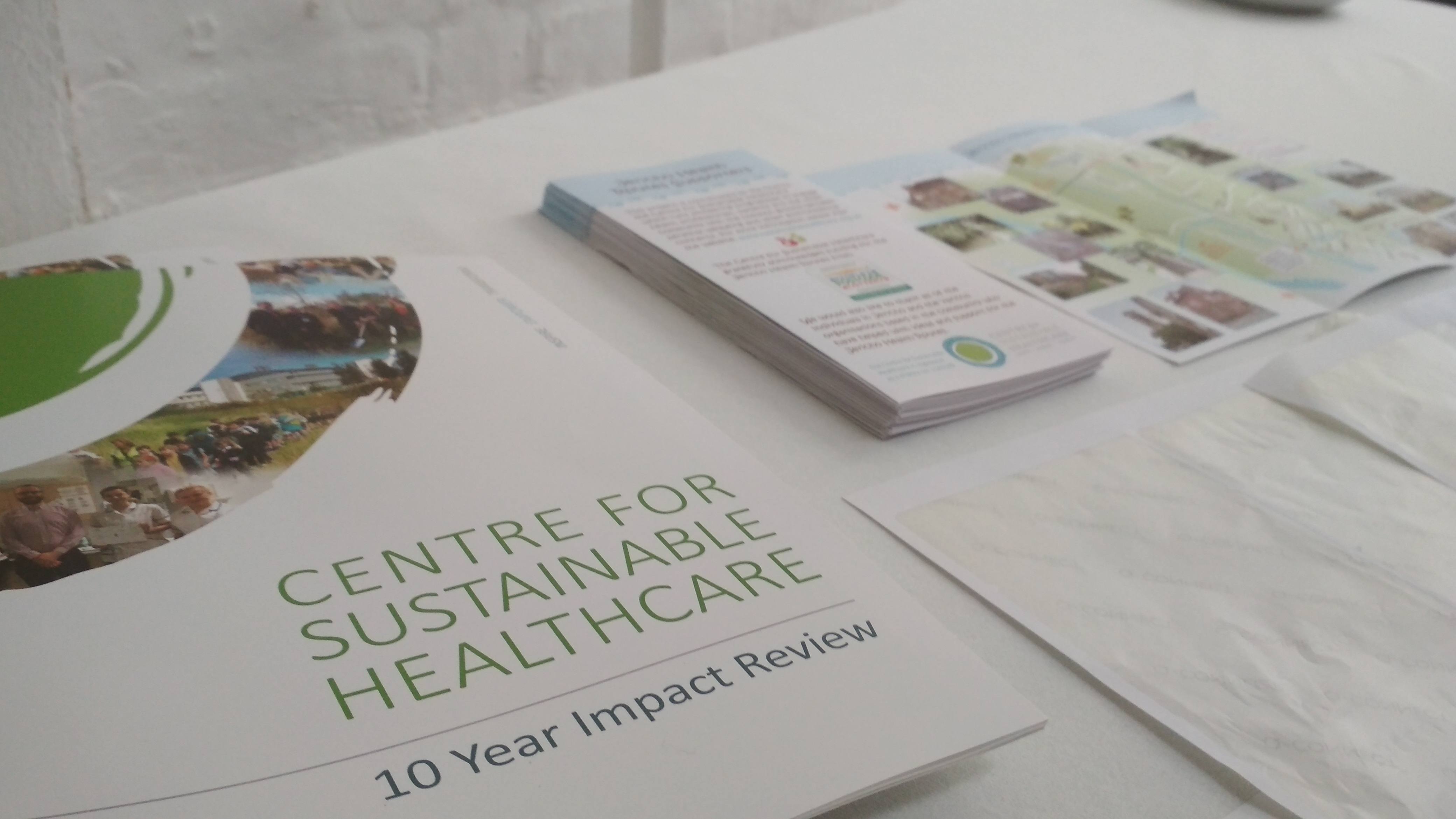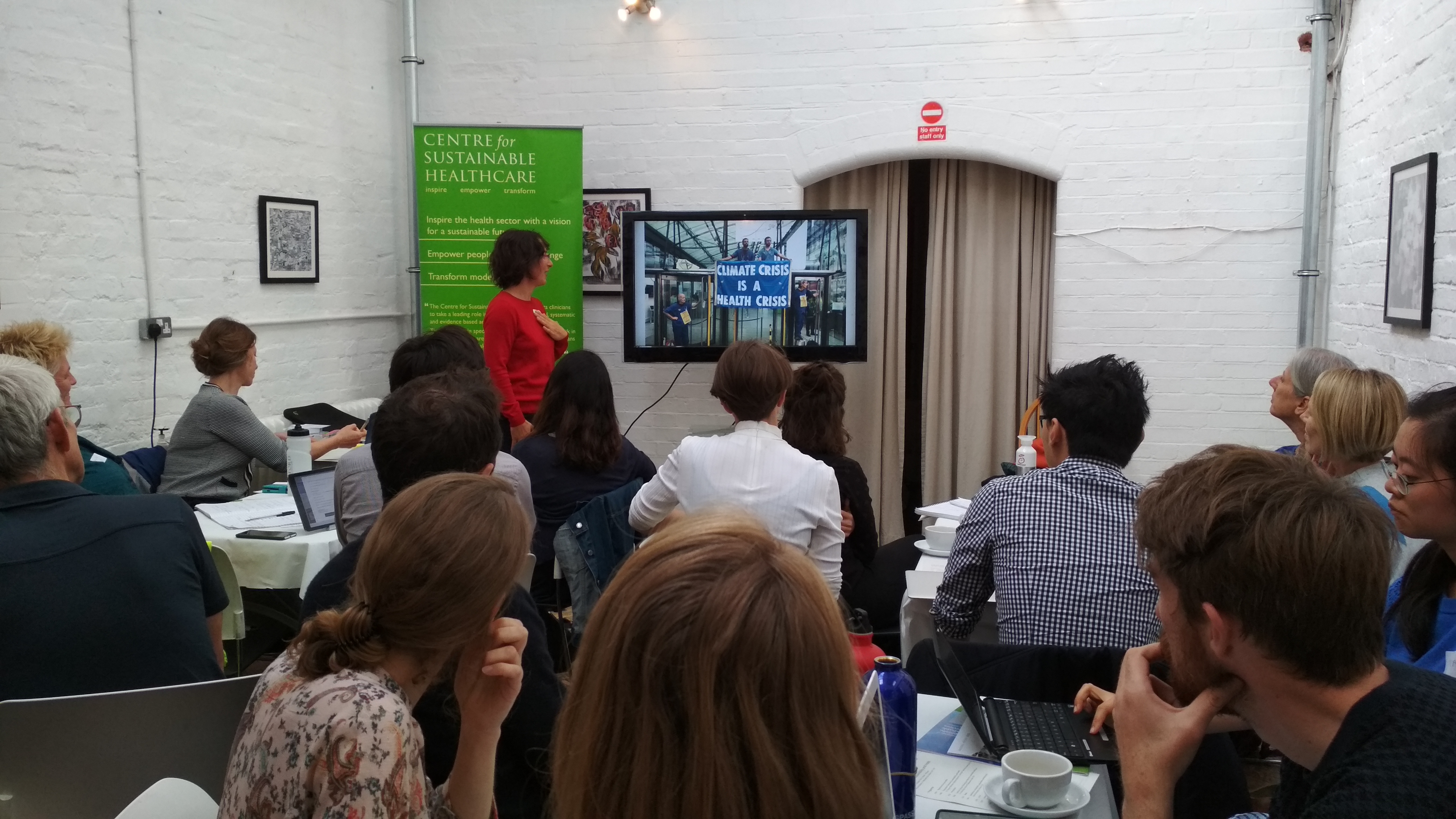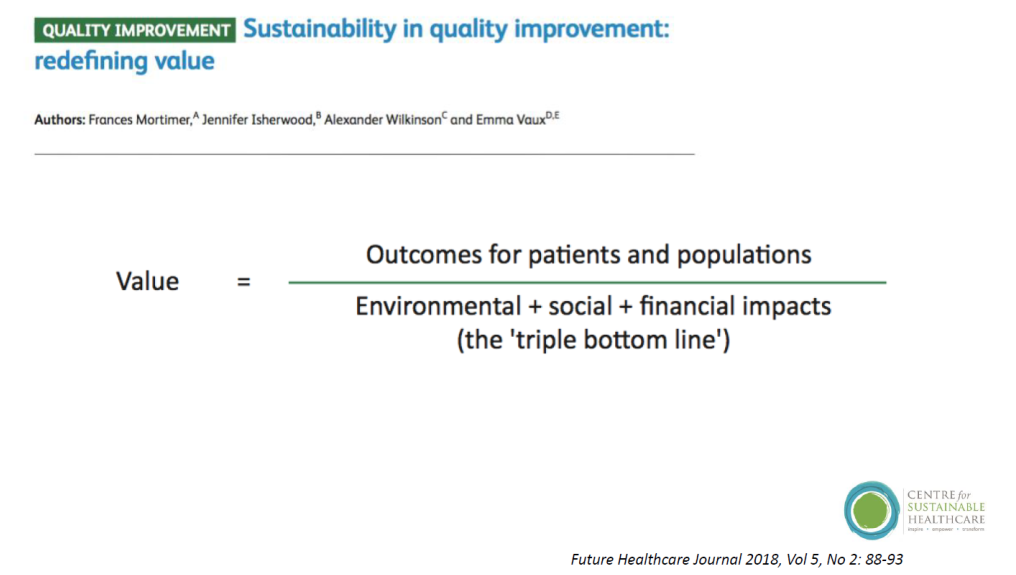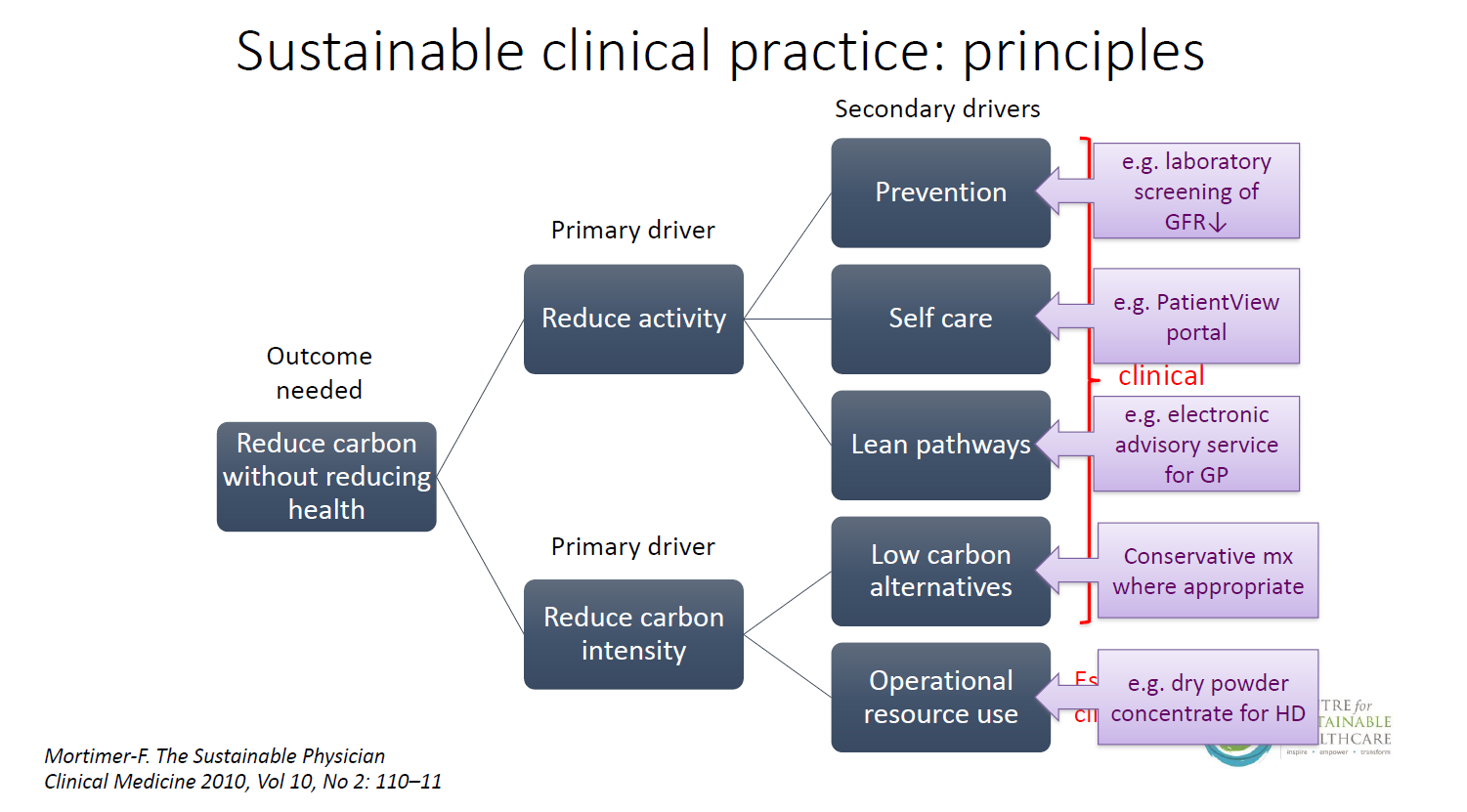Reflections on training with the Centre for Sustainable Healthcare

On 4 October, North Bristol – where I live – joined many NHS Trusts in declaring a climate emergency “to show a clear and positive commitment to tackle it and its effects on the health of our population”. Shortly after this, during two weeks of climate action by the protest group Extinction Rebellion, hundreds of health workers took part in a Health March for the Planet calling for recognition that the climate issue is a health issue.
Climate change has been identified as the greatest threat to global health in the 21st century[1] with air pollution killing 40,000 people in the UK alone each year. Healthcare itself emits five percent of all greenhouse gases in England[2] with kidney care contributing significantly to these emissions.
Ten years ago, the Centre for Sustainable Healthcare (CSH) partnered with the Renal Association, the British Renal Society, the NHS Sustainable Development Unit and industry partners to set up the Green Nephrology programme to support sustainable kidney care. This ambitious programme achieved many outputs, including a comparative carbon footprint of haemodialysis provided at home vs. in-centre, as well as a carbon footprint of a local renal service and case studies of local green initiatives.
Watch a short video on the work of Green Nephrology here
CSH has provided a framework and a sustainability model that can be applied to any improvement work in the healthcare system. Members of the Kidney Quality Improvement Partnership (KQuIP) team attended the centre’s “Sustainable QI” one day training course last month to find out more. The course took attendees through what sustainable clinical practice means, the key principles of sustainable improvement and allowed space at the end of the day to work on current projects and discuss them with the experts in the room. It was an enlightening and motivational day, and we strongly encourage more members of the kidney community to attend the future courses – but for those of you who cannot, I will try my best to explain (in brief!) the key principles…

What is sustainable healthcare?
Clinical practice that has sustainable value:
- Protects the health service for current and future generations, and;
- Protects health for current and future generations
“A sustainable health and care system works within the available environmental and social resources protecting and improving health now and for future generations.”
The Sustainable Development Unit, NHS England, 2016
There are environmental, social and economic considerations that need to be taken into account when providing healthcare – this is referred to as the ‘triple bottom line’ and can be used to re-frame what value means in the 21st century:

What are the steps we can take to achieve sustainable and high value improvement?
There are four key principles of sustainable healthcare that can provide a framework allowing us to review healthcare services through a sustainability lens. The four principles of sustainable clinical practice are:
- Prioritising prevention
- Empowerment of individuals and communities
- Lean systems
- Low carbon alternatives
You can apply this sustainability approach to any project, at any stage – below is an example given from Green Nephrology and CSH that shows how these four principles can be developed into a project to improve the value and sustainability of kidney services:

CSH have estimated, through case examples in Green Nephrology, that by adopting reasonable, green strategies, the average kidney unit could save between £100,000 to £200,000 per year. Scaled up, if those strategies were implemented systematically across kidney services nationwide, the NHS could save at least £1 billion whilst at the same time reducing its impact on the environment and improving the health of current and future populations.
What next for Green Nephrology?
As the climate emergency increases in urgency, how can we build on the ground-breaking work that has already been done in nephrology, whilst continuing to push for a greener, more sustainable kidney care service at this time of crisis – for the climate, and the NHS with its financial pressures and over-stretched capacity?
The Kidney Quality Improvement Partnership (KQuIP) involves numerous people and stakeholders – professional associations, charities, clinicians, patients, managers, businesses – all of whom bring to the partnership their own skills, interests and expertise. This is the strength of the partnership, and allows for the exploration of new ideas, the harnessing of multiple organisations, and pooling of resources. Many regional quality improvement KQuIP networks have developed and begun meeting regularly over the last few years, to share quality improvement work and collaborate on projects.
Looking at the innovation from the green nephrology projects of ten years ago – from improving waste disposal in Leicester, conserving water in Kent and introducing tele-clinics in Coventry – there is a lot to learn and spread. Harnessing KQuIP as the vehicle through which to spread and sustain these ideas could be one route to embedding sustainability in our services. Reviewing current KQuIP activity and renal QI projects already underway through a sustainability lens, and embedding the idea of sustainable change across all renal networks and projects, could re-invigorate Green Nephrology, and inspire more people to get involved in the improvement work already going on.
Ten years on from the start of the Green Nephrology programme, now is the time to press on and begin rolling out the proven sustainable initiatives from this project, and piloting and sharing results from new ideas and technology.
Are you inspired by the climate emergency to carry out a sustainable quality improvement project at your kidney unit, or to adopt one of the initiatives from the green nephrology case studies? KQuIP and the CSH would like to gather and share ideas and examples of sustainable QI. Please get in touch with KQuIP@renalregistry.nhs.uk if you have a story to share.
For more information and resources on sustainable QI, visit the CSH website here.
[1] UCL/Lancet Commission, May 2009
[2] Sustainable Development Unit. (2016). Carbon Footprint update for the NHS in England.
